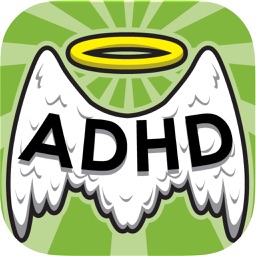Attention Deficit Hyperactivity Disorder (ADHD) affects millions of people worldwide, manifesting through difficulties with attention, impulse control, and hyperactivity. Supporting a loved one with ADHD can be challenging but also deeply rewarding. Understanding the condition and learning effective strategies to provide support can significantly enhance their quality of life and strengthen your relationship.
1. Educate Yourself About ADHD
The first step in supporting a loved one with treatment of ADHD is to educate yourself about the disorder. ADHD is a neurodevelopmental condition characterized by persistent patterns of inattention, hyperactivity, and impulsivity. It's essential to understand that ADHD is not a result of laziness or poor parenting but a legitimate medical condition with neurological underpinnings.
Educate yourself about the symptoms, treatments, and coping mechanisms associated with ADHD. Understanding how ADHD affects daily functioning can help you be more empathetic and patient. There are numerous resources available, including books, online articles, and support groups that can provide valuable insights.
2. Communicate Openly and Supportively
Open and supportive communication is crucial in any relationship, especially when dealing with ADHD. Approach conversations with empathy and patience. Avoid blame or criticism, as these can exacerbate feelings of inadequacy or frustration.
Listen actively and validate their feelings. When discussing ADHD-related challenges, focus on problem-solving together rather than assigning fault. Encourage them to express their needs and concerns, and be willing to collaborate on finding solutions that work for both of you.
3. Create a Structured Environment
Individuals with ADHD often benefit from a structured and predictable environment. Help your loved one establish routines and organizational systems to manage daily tasks and responsibilities. This can include setting up schedules, using reminders, and breaking tasks into smaller, manageable steps.
You can assist by helping to create visual aids, such as checklists or calendars, that outline daily, weekly, or monthly tasks. Consistent routines and clear expectations can reduce anxiety and improve overall functioning.
4. Offer Practical Assistance
Sometimes, practical help can make a significant difference in managing ADHD symptoms. Offer assistance with tasks that may be particularly challenging for them, such as organizing their workspace, planning meals, or managing finances.
You can also support them in finding tools and resources that aid in organization and time management. For example, digital apps for reminders and to-do lists, or physical tools like planners and organizational trays, can be incredibly beneficial.
5. Encourage Professional Support
Encourage your loved one to seek professional help if they haven’t already. ADHD is often managed through a combination of medication, therapy, and lifestyle changes. A mental health professional, such as a psychologist or psychiatrist, can provide a diagnosis, develop a treatment plan, and offer strategies to manage symptoms.
Support their efforts to adhere to their treatment plan and attend therapy sessions. If they’re already receiving treatment, offer encouragement and be involved in the process if they find it helpful.
6. Promote Healthy Lifestyle Choices
A healthy lifestyle can significantly impact ADHD symptoms. Encourage your loved one to adopt healthy habits, such as regular exercise, a balanced diet, and adequate sleep. Physical activity can help improve focus and reduce hyperactivity, while a nutritious diet and proper rest contribute to overall well-being.
Engage in these healthy activities together when possible. For example, you might join them in a workout routine or prepare healthy meals together. Shared activities not only promote better health but also strengthen your relationship.
7. Develop Coping Strategies Together
Work with your loved one to develop coping strategies tailored to their specific needs and challenges. This might involve finding ways to manage impulsivity, developing strategies to improve focus, or identifying triggers that exacerbate symptoms.
Explore different techniques, such as mindfulness, relaxation exercises, or cognitive-behavioral strategies, to see what works best for them. Be patient and willing to adapt as needed, and celebrate small successes along the way.
8. Be Patient and Understanding
Patience and understanding are critical when supporting someone with ADHD. There will be times when their symptoms may lead to frustration or misunderstandings. It’s important to remember that these challenges are part of the condition, not a reflection of their character or intentions.
Practice empathy by putting yourself in their shoes and recognizing the difficulties they face. Acknowledge their efforts and progress, no matter how small. Your patience and positive reinforcement can make a significant difference in their confidence and motivation.
9. Set Boundaries and Manage Your Own Well-Being
Supporting a loved one with ADHD can be demanding, and it’s essential to take care of your own well-being. Set boundaries to ensure that you’re not overwhelmed by the responsibilities of caregiving.
Seek support for yourself through counseling or support groups if needed. Taking time for self-care and maintaining your own mental health are crucial for sustaining a supportive relationship.
10. Celebrate Achievements and Strengths
Recognize and celebrate your loved one’s achievements and strengths. ADHD symptoms can come with unique talents and abilities, such as creativity, problem-solving skills, and high energy. Highlighting these positive aspects can boost their self-esteem and motivation.
Celebrate milestones, whether they’re related to managing symptoms, achieving personal goals, or making progress in their treatment. Positive reinforcement and encouragement can foster a sense of accomplishment and reinforce their efforts.
Conclusion
Supporting a loved one with ADHD involves a combination of education, communication, practical assistance, and empathy. By understanding the condition, creating a structured environment, and promoting healthy lifestyle choices, you can help them manage their symptoms and improve their quality of life. Patience, active involvement, and self-care are also essential components of providing effective support.
Ultimately, your love and support can play a crucial role in helping your loved one thrive despite the challenges of ADHD.





Comments